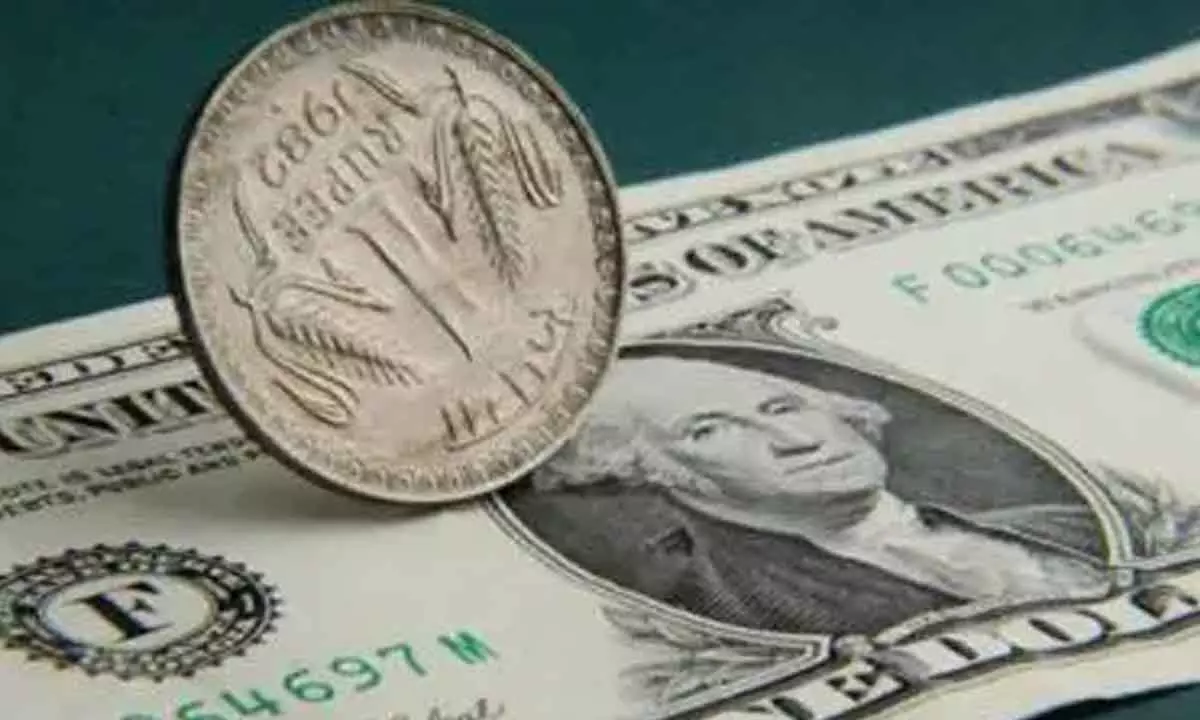Rupee expected to trade in Rs 79.75-80.0/$ range in the near-term: BOB report
The Indian rupee is expected to trade in the range of 79.75-80.00 against the US dollar in the near term because the US Federal Reserve Chair has clearly signalled higher rates are likely to stay, the dollar index may see a further uptick, according to a Bank of Baroda (BOB) report.
image for illustrative purpose

Mumbai, Sep 1 The Indian rupee is expected to trade in the range of 79.75-80.00 against the US dollar in the near term because the US Federal Reserve Chair has clearly signalled higher rates are likely to stay, the dollar index may see a further uptick, according to a Bank of Baroda (BOB) report.
This will keep global currencies, including INR under pressure. While FPI flows have remained positive in August 22, higher rates in the US along with a slowing global growth may spur a fresh bout of FPI withdrawals from the Indian market. On the positive side, oil prices may see some correction as higher rates tip the global economy into a slowdown if not recession.
In the last fortnight, rupee remained largely stable with active intervention by the central bank to prevent its free fall.
Rupee was under pressure after Powell's speech. Apart from the dollar strength, other factors have also exacerbated the fall in rupee in the last couple of days.
After the Fed Chairman Jerome Powell's speech most global currencies have declined sharply, with dollar index, which gauges the strength of dollar against a basket of six currencies, rose 2.2 per cent in the last fortnight.
As per report, the Japanese yen has seen the maximum decline as the widening policy divergence between the BoJ and other global central banks continues to weigh on the currency.
The pound has witnessed a sharp decline of 3.2 per cent amidst a worsening cost-of-living crisis which is expected to push the economy into a recession.
The euro too has been weakening against the dollar. The yuan too continues to remain under pressure amidst a deteriorating economic outlook, led by the ongoing property crisis.

